Is Your Garage Door Opener Repair Overdue? Find Out Now
Opening Hook: Have you ever wondered if that strange sound from your garage door opener is just a harmless quirk—or the warning sign of a bigger problem? Your garage door is a daily convenience, but a malfunction can leave you stranded or compromise your home's security.
Garage door opener repair is rarely top of mind—until something goes wrong. A grinding noise, inconsistent operation, or unresponsive remote can stop you in your tracks. Ignoring these signs risks not just the convenience of smooth door opening but your home’s safety. Many homeowners dismiss early warnings, only to face emergency situations or costly replacements later on. In this guide, we’ll help you unlock the signs that signal the need for opener repair, explain the common causes, and break down what you can expect to pay.
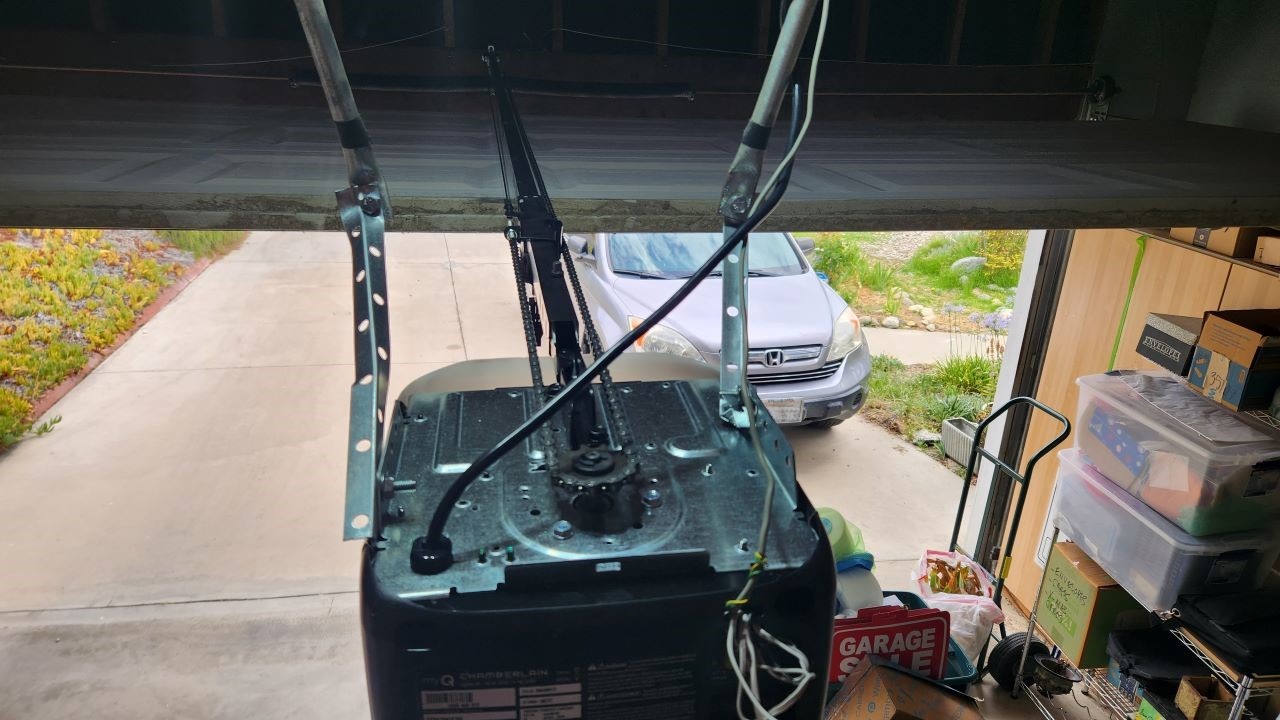
What You'll Learn About Garage Door Opener Repair
How to identify the signs you need garage door opener repair
Common causes for garage door opener malfunctions
A breakdown of garage door opener repair costs
When to repair vs. replace your garage door opener
DIY garage door opener repair tips and when to call a professional
Expert advice on garage door, door opener, and door repair solutions
Understanding Garage Door Opener Repair: Basics & Importance
What Is Garage Door Opener Repair?
Garage door opener repair involves troubleshooting and fixing the motorized mechanism that controls your garage door's ability to open and close automatically. Most modern garage doors rely on a system of gears, sensors, circuit boards, and remote controls. Over time, the drive gear, door roller, and associated hardware can wear out, causing issues from grinding noise to inconsistent motion. Opener repair may range from simple hardware adjustments to complex circuit board replacement. Early intervention prevents the escalation of minor malfunctions into full-on system failures. Homeowners often assume opener problems require full garage door repair, but sometimes the issue is isolated to the opener itself—a good reason to learn the difference and act early.
Why Timely Garage Door Opener Repair Matters
Timely garage door opener repair not only restores daily convenience but protects your household's security and safety. A faulty door opener can leave your garage exposed, risking theft or injury. In some cases, delayed repairs cause additional wear on other parts—like rollers or the circuit board—raising costs and downtime. For families that rely on their garage as a primary entryway, prompt diagnosis and repair can mean the difference between a minor fix and a major headache. Addressing issues when you first notice a grinding noise, remote problems, or erratic motion keeps your door mechanism efficient and extends the life of your garage door opener.
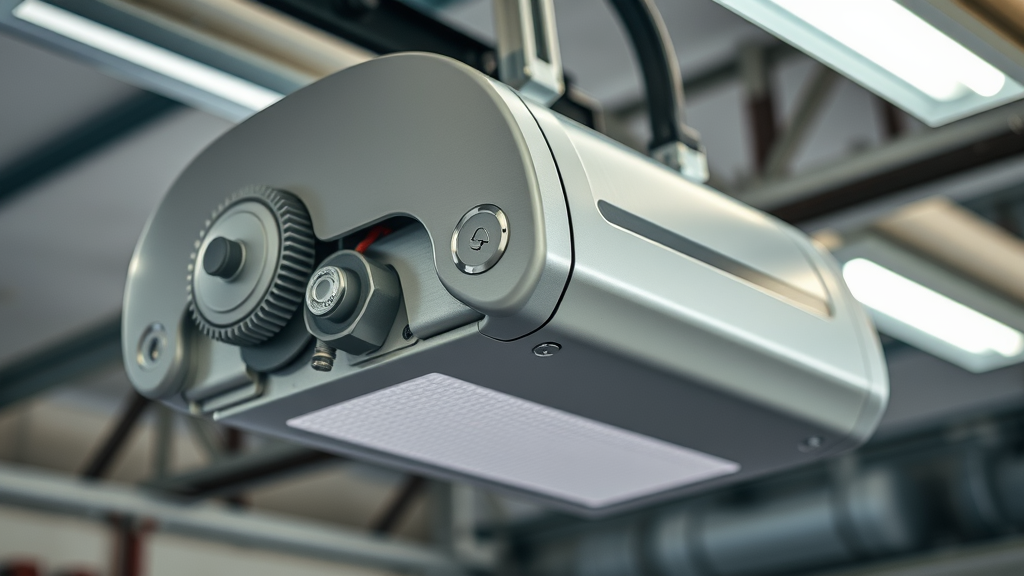
Difference Between Door Opener Repair and Garage Door Repair
While garage door opener repair targets the electronic and mechanical components responsible for automatic door movement, garage door repair addresses structural problems—like damaged door panels or springs. Door opener repair focuses on circuit boards, sensors, push buttons, and gear assemblies. In contrast, garage door repair may involve heavy lifting, panel alignment, or fixing a broken garage structure. Homeowners often confuse opener issues (no response from the remote, circuit board failure, door not opening/closing on command) with door-related problems (damaged tracks, broken torsion springs). Recognizing the difference saves time and ensures you get the right garage door service for your needs.
"A malfunctioning garage door opener can affect not only convenience—but also household security and safety."
Common Signs You Need Garage Door Opener Repair
Door Opener Noises: Clicking, Grinding Noise & What They Mean
Unusual sounds coming from your garage door opener are among the earliest indicators of trouble. Clicking noises may signal relay or wiring issues within the circuit board, while a persistent grinding noise often results from a worn drive gear or faulty door roller. These issues can affect how smoothly your garage door opens and closes. Instead of ignoring these auditory warnings, consider that they frequently point to developing failures in your door opener mechanism. Tackling the problem promptly can prevent greater damage and the need for a full garage door opener replacement. Always investigate new noises, as early detection via opener repair helps avoid emergencies.
Inconsistent Operation or Door Rollers Malfunction
Does your garage door hesitate, move jerkily, or fail to open and close reliably? This inconsistent operation is a classic sign of opener trouble or failing door rollers. Rollers that are worn, rusted, or misaligned can put pressure on the door opener, causing it to struggle and create extra operating noise. Sometimes, a malfunctioning drive gear or a circuit board on its last legs can introduce these symptoms. Frequent stops, sluggish movement, or reversal before fully closing are not "just quirks"—they’re clear signals you need to look into garage door opener repair. Addressing these problems early can reduce cost and extend the life of your garage door system.

Remote and Wall Switch Not Working
A non-functioning remote or wall switch is frustrating and often leads homeowners to suspect a power outage, battery failure, or more severe garage door opener issues. If your opener fails to respond to any control—remote or wall switch—it might indicate a deeper problem with the opener’s circuitry, wiring, or receiver. Another common cause is a faulty circuit board, which disables both manual and remote operation. Before calling for garage door opener repair, test your remote on multiple occasions, check for LED indicator lights, and inspect the wall switch. Persistent issues warrant professional door opener repair, as complete non-response rarely resolves on its own.
Sudden Stops or Reversals During Operation
If your garage door suddenly stops or reverses direction during operation, it’s more than a minor annoyance. Obstructions, misaligned safety sensors, or malfunctioning drive gear could be to blame. This behavior is a safety feature of modern openers, designed to prevent injury or property damage, but frequent false-reversals point to underlying control or hardware issues. If your door seems stuck or changes direction without any obstruction, garage door opener repair should be your priority before further use. Ignoring sudden stops or reversals risks harming the opener or causing inadvertent safety hazards for your household.
Lack of Response from the Circuit Board
The circuit board functions as the brain of your garage door opener, processing inputs from remotes, wall switches, and safety sensors. A lack of response—no lights, sounds, or activity—indicates a significant malfunction that simple DIY fixes likely can’t address. Power surges, electrical issues, or age-related wear can render the circuit board inoperable, halting all garage door movement. When troubleshooting basics don’t fix the problem, calling a garage door service for circuit board analysis is your best step. Persistent circuit board issues may suggest it’s time for either repair or a replacement, depending on the age of your door opener system.
Causes Behind Garage Door Opener Repair Needs
Worn-Out Garage Door Rollers and Hardware
Over time, the door rollers and associated hardware bear the brunt of daily use—opening and closing your garage door multiple times a day. Friction, dirt, and weather can accelerate their wear, resulting in rusted, worn, or misaligned rollers. Worn rollers force your garage door opener to work harder, potentially damaging the drive gear or motor assembly. Early replacement of door rollers is an economical repair that can extend your opener’s life and ensure smooth, safe operation. If you hear grinding noise or notice jerky door motion, inspecting and replacing worn parts is an essential part of any opener repair strategy.
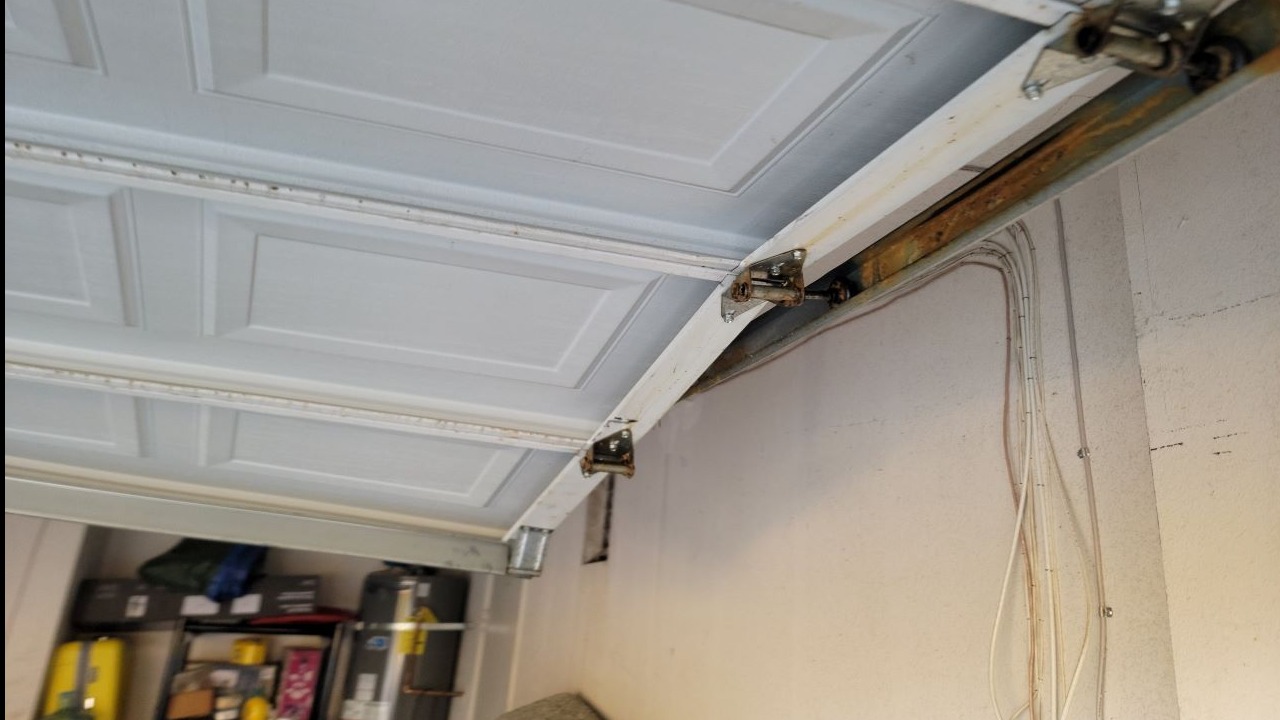
Faulty Circuit Board and Electrical Issues
Your garage door opener relies on its circuit board to handle all commands and safety functions—any compromise here affects the whole system. Faults can stem from age, power surges, or wiring damage. A malfunctioning circuit board is a leading cause of non-responsive openers, dead remotes, or random operation glitches. Sometimes, simply resetting the opener can revive it, but often, professional circuit board repair or replacement is necessary. Persistent electrical issues, such as blown fuses or repeated power loss, may also require expert door opener repair to avoid additional damage or risk of fire. Consider calling a precision garage door service when electrical problems emerge.
Misaligned Safety Sensors
The safety sensors on your garage door are designed to protect people, pets, and property by halting or reversing the door if an object is detected. When these sensors become dirty, obstructed, or misaligned, they may trigger false responses—stopping the door or preventing it from closing. Sensor misalignment is a common problem that leads to unnecessary opener repair calls. Homeowners can often realign sensors, but if the problem persists, underlying wiring or circuit issues may be at fault. Properly aligned and clean sensors contribute to both safe operation and longevity of your garage door opener.
Broken Emergency Release Mechanism
Every modern garage door opener is equipped with an emergency release—a red cord or lever that allows you to operate the door manually. If this mechanism breaks, usually from excessive force or misuse, it can leave your garage door stuck open or closed during a power outage or system failure. A broken emergency release doesn’t just inconvenience—it’s also a major safety concern if you need to evacuate or access your vehicle in an emergency. Timely garage door opener repair of this part ensures you always have manual control when it’s needed most. If your release cord feels loose or fails to disengage the door opener, arrange for urgent inspection and repair.
Garage Door Opener Repair Cost Breakdown
Typical Garage Door Opener Repair Costs | |
Repair Type |
Average Cost (USD) |
|---|---|
Minor Adjustments |
$50–$100 |
Roller Replacement |
$100–$200 |
Circuit Board |
$150–$300 |
Full Opener Repair |
$200–$350 |
Door Service Fee |
$75–$150 |
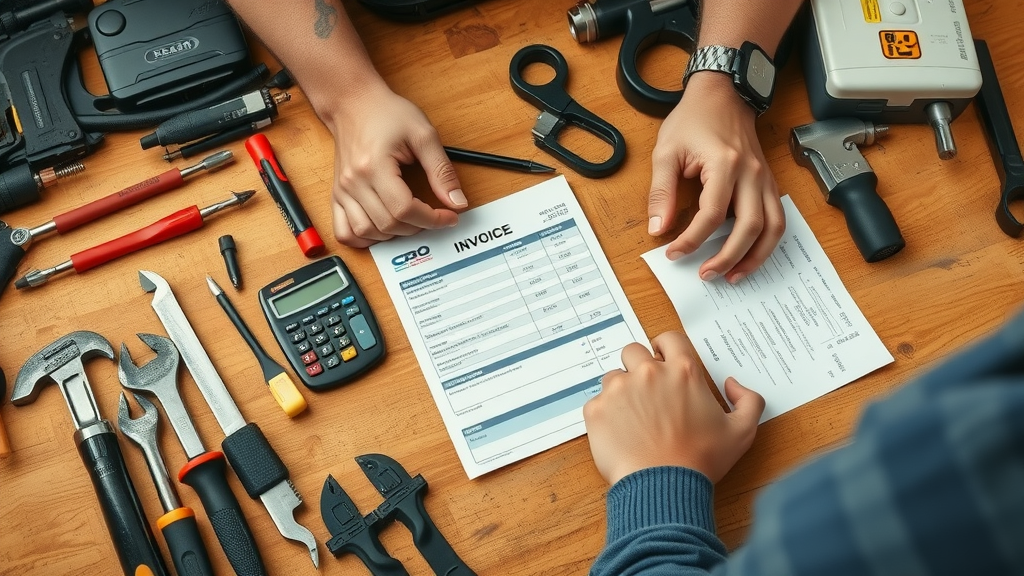
Understanding garage door opener repair costs helps homeowners make informed decisions about maintenance and budgeting. Minor tweaks like adjusting sensors or lubricating parts typically run from $50 to $100, while replacing worn door rollers or performing basic hardware fixes usually costs $100 to $200. More complex fixes, such as replacing a faulty circuit board or a full opener rebuild, can cost between $150 and $350. Most garage door companies will also charge a service fee for house calls, usually between $75 and $150. Compare these amounts to the potential cost of a new garage door opener—most repairs are significantly more budget-friendly, especially for newer units.
Garage Door Opener Repair vs. Replacement: Which Is Better?
Signs It’s Time for Door Opener Replacement
Some issues simply can’t be resolved by garage door opener repair alone. If your opener is over 10-15 years old, frequently malfunctions despite regular fixes, or lacks essential safety features, replacement could be the smartest move. Modern openers offer advanced safety sensors, quiet operation, and smart connectivity that older models can’t match. If your garage door opener is consistently unresponsive, emits loud grinding noise, or the cost of necessary repairs exceeds half the price of a new unit, investing in a new garage door opener is usually more economical. Precision garage door replacement services can also upgrade your system for added reliability and convenience.
Longevity and Cost Considerations for Garage Door Opener
Weighing the decision between garage door opener repair and replacement involves evaluating the age of your unit, frequency of issues, and repair history. Newer openers with isolated problems, like circuit board failure or drive gear wear, are generally worth repairing. However, if you’re dealing with obsolete technology, repeated service calls, or ongoing safety issues, replacement offers long-term value and peace of mind. Don’t forget to factor in energy efficiency and enhanced security options available in today’s top garage door openers—sometimes, a little extra upfront saves more down the road.
"Sometimes, investing in new garage doors or door opener technology can save more in the long run than repeated repairs."
Step-by-Step: How to Diagnose Your Garage Door Opener Problem
Observe for grinding noise and irregular motion
Check the circuit board status lights
Test garage door remotes and wall switches
Inspect door rollers and safety sensors
Use emergency release to check manual operation
A systematic approach to opener diagnostics can save time and money. Listen for abnormal sounds, verify the functionality of controls, look for blinking lights on the circuit board, and manually operate the door if needed. If the issue persists after these checks, you’ll know it’s time to consult a garage door service professional.
DIY Garage Door Opener Repair: Tips and Safety
When to Attempt DIY and When to Call a Garage Door Service
Minor adjustments—like aligning sensors, tightening loose hardware, or replacing batteries—are often within the capabilities of a handy homeowner. DIY can solve common problems such as grinding noise, limited response from the remote, or a door that doesn’t open and close smoothly. However, when the issue involves the circuit board, major electrical work, or persistent inconsistencies despite your efforts, it’s critical to enlist a professional garage door service. Attempting complex opener repair without expertise risks further damage or injury. When safety, warranty, or advanced troubleshooting is at stake, call a precision garage door company for reliable results.
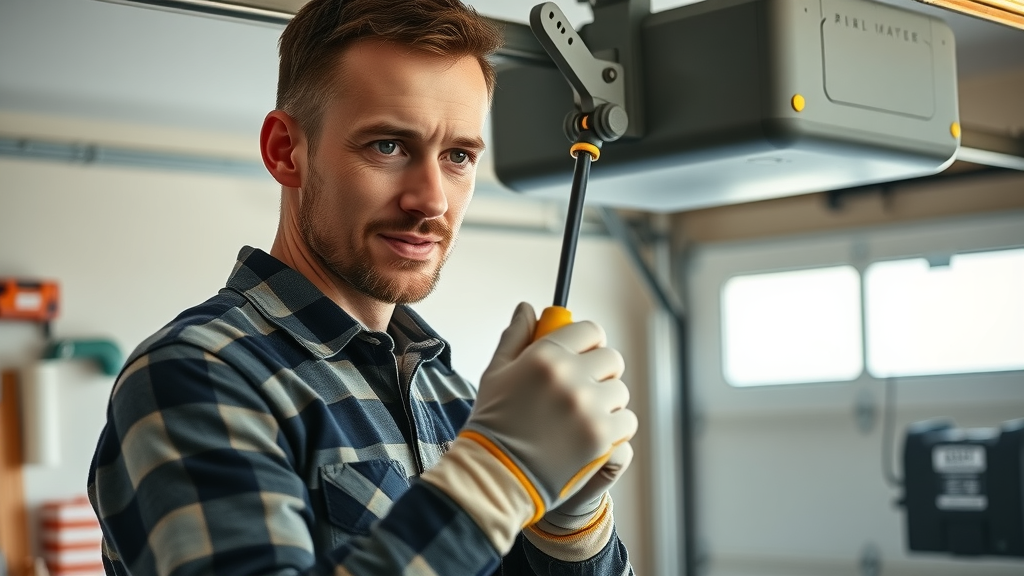
Safety Precautions for Garage Door Opener Repair
Safety should always come first. Disconnect the garage door opener from power before any repair, and use insulated tools when handling electrical components. Wear safety gloves to protect against sharp hardware and avoid working alone in case of emergencies. Never attempt to adjust high-tension springs—these parts can cause serious injuries and require precision garage door intervention. If you notice frayed wiring, damaged circuit board, or a broken release cord, stop and contact a garage door opener repair specialist. Secure your workspace, keep pets and children away, and always consult your opener’s manual before making adjustments.
Gain confidence in troubleshooting grinding noise, sensor alignment, circuit board malfunctions, and door roller problems with a step-by-step walkthrough. This visual guide demystifies basic diagnostics and helps you decide when to repair your garage opener and when to call for professional precision garage door service.
This video helps homeowners understand the emergency release process, manual operation, and quick troubleshooting tips for sudden opener issues. If you’re stranded due to a power outage or unresponsive circuit board, these skills are essential before help arrives.
Expert Garage Door Opener Repair: When Professional Service is Essential
What to Look For in Garage Door Service Providers
Choosing the right garage door company ensures quality results and peace of mind. Look for a provider with certified technicians, excellent reviews, transparent pricing, and a proven record in garage door opener repair. A reliable company should offer warranty-backed products and services, rapid response to emergencies, and clear communication about repair versus replacement options. If you have a complex door system or face frequent opener failures, opting for a precision garage door specialist pays for itself in long-term performance and safety.
Precision Garage Door Repair for Complex Problems
Some garage door opener repair issues call for expert hands, especially when it comes to advanced mechanisms, smart home integration, or intricate drive gear failures. Precision garage door repair specialists are trained to handle in-depth diagnostics, circuit board replacement, and recalibration of safety features. Attempting major repairs without the right expertise can cause further malfunctions or void your system’s warranty. For peace of mind and lasting reliability, professional garage door service is often the smartest route for restoring your opener’s full function.
"Professional door opener repair ensures your garage door operates at its best—safely and reliably."
People Also Ask
Are garage door openers worth repairing?
Often, minor garage door opener repair is worthwhile, especially when the issue involves simple adjustments, hardware replacement, or circuit board fixes. However, if your device is over a decade old or requires frequent repairs, replacement may be more cost-effective in the long run.
What is the average cost to have a garage door opener replaced?
The average cost to replace a garage door opener ranges from $300 to $600, depending on the opener type, labor rates, and additional features or smart technology chosen.
How do I repair a garage door opener?
For minor garage door opener repair, follow manufacturer troubleshooting guides for issues like grinding noise or non-response. Tighten hardware, check safety sensors, and test remotes. For issues with circuit boards or persistent malfunctions, seek expert door opener repair or garage door service.
How do you diagnose a garage door opener problem?
Watch for signs like intermittent operation, grinding noise, or dead remotes. Test the emergency release, check for misaligned sensors, examine the garage door rollers, and note circuit board warnings. If problems persist, consult a professional garage door service for diagnosis and opener repair.
FAQs: Garage Door Opener Repair
How long should a garage door opener last?
Can I upgrade my garage door opener?
What brands are best for garage door opener repair?
Is emergency release repair covered under warranty?
How do weather and power surges affect the circuit board?
Key Takeaways for Garage Door Opener Repair
Early detection of garage door opener issues saves money and prevents inconvenience.
Common problems include grinding noise, circuit board failure, and worn rollers.
Garage door opener repair is often more economical for modern units, but replacement may suit older devices.
Professional garage door opener repair ensures safe and lasting results.
Conclusion: Secure and Reliable Garage Door Opener Repair
Don’t Wait—Contact Our Garage Door Service Experts Today
For secure, affordable, and lasting garage door opener repair, trust the professionals to keep your garage safe and functional.
 Add Row
Add Row  Add
Add 

Write A Comment